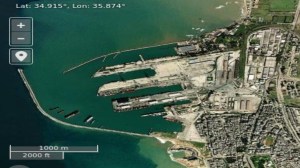As Washington’s support for Ukraine appears to be losing momentum, emerging policy shifts might inadvertently hand Moscow a strategic double victory—one on the Eastern European front and another in the Middle East.
Despite its long-standing rivalry with Moscow, the United States may consider a move that could reestablish Russia’s military presence in Syria, potentially at the behest of Israel.
According to sources cited by Reuters, Israel has been lobbying Washington to allow Russia to maintain its military bases in Syria, an effort aimed at countering Turkey’s rising influence in the region.
This push comes at a critical moment for Syria, as its new Islamist regime, backed by Turkey, seeks to consolidate power and convince the US to lift sanctions.
Israel has publicly voiced its concerns about Hayat Tahrir al-Sham (HTS), the Islamist faction that led the campaign to overthrow Bashar al-Assad. Israeli Prime Minister Benjamin Netanyahu has stated that Israel will not tolerate HTS or any forces affiliated with Syria’s new regime near its borders.

Israel has long viewed Syrian instability as a security threat and has taken an aggressive stance against the new leadership. It has even launched a series of military strikes inside Syria, targeting key military sites and weapons depots.
The sources revealed that Israel conveyed its stance to senior US officials during meetings in Washington in February and in follow-up discussions in Israel with US Congressional representatives. It is also noted that key points were shared with some high-ranking US officials through an Israeli “white paper.”
However, the extent to which US President Trump would support these proposals remains uncertain. His administration has largely avoided clear statements on Syria, leaving questions open about whether US troops will remain there or if sanctions will be lifted.
Meanwhile, Israeli officials have expressed deep concerns over Turkey’s growing role as a close ally of Syria’s new leadership. Turkish President Tayyip Erdogan has been a vocal critic of Israel, advocating for an Islamic alliance to counter what he calls Israel’s “expansionism.”
Recent statements from Israeli Foreign Minister Gideon Saar suggest that Israel fears Turkey may be helping Iran strengthen Hezbollah, effectively creating another front against Israel.
Washington’s Syria Policy Could Hand Russia A Major Victory?
If the US ultimately supports Russia in keeping bases in Syria—either out of strategic necessity or as a byproduct of Israeli lobbying—it could hand Moscow a geopolitical victory at a time when Washington’s aid efforts for Ukraine are also under strain.
The collapse of the Syrian regime has dealt a severe blow to Russia’s regional influence. The shift in power has placed the future of Moscow’s key military footholds—the Tartus Naval Base and Khmeimim Air Base—into question.
Tartus, in particular, plays a critical role in Russia’s strategic positioning. This naval facility is Moscow’s gateway to the Mediterranean, enabling access to Libya, the Red Sea, and broader logistical support for its military activities in Africa, including operations in Sudan and West Africa.
However, without a clear agreement with Syria’s new leadership, Russia has been forced to scale back its presence, steadily withdrawing troops and military assets from the region.
The increased frequency of large cargo flights departing from Khmeimim Air Base and the noticeable movement of heavy-load maritime vessels from Russian ports in northern Europe to Tartus indicate the extent of Moscow’s pullback.
While Russia does have potential alternative bases in Libya and Algeria, these locations come with logistical and political complications. Further, the geographical constraints and maintenance requirements would make them less effective than Syria’s well-established military infrastructure.
The future of Russia’s presence in Syria mainly rests in the hands of interim President Ahmed Sharaa. Unlike his predecessor, Bashar al-Assad, who granted Russia a 49-year lease for Tartus and an indefinite lease for Khmeimim, Sharaa seeks to renegotiate these agreements to secure more favorable terms for Syria.
However, rather than completely severing ties with Moscow, he appears open to allowing Russia to maintain its military foothold in exchange for diplomatic backing and financial incentives.
Given that Russia has been deeply entrenched in Syria’s economic and defense sectors for decades, long before it formally intervened in the Syrian civil war in 2015, such a compromise would allow both parties to protect their interests.
Despite recent efforts by the European Union and the United States to ease sanctions on Syria, the country remains in a dire economic state, with ongoing restrictions making international trade difficult.
A renewed flow of Russian military equipment, fuel, and wheat could provide a much-needed economic lifeline.
If Washington decides to follow Israel’s recommendation and agrees to Russia’s presence in Syria, Moscow could quickly reestablish its full military footprint in the region. However, this scenario carries broader geopolitical implications.
Russia’s strengthened presence would not only reinforce its influence in Syria but also serve as a counterbalance to US power in the region, potentially even more so than Turkey or the Gulf states.
Currently, the United States remains the primary obstacle to Hayat Tahrir al-Sham’s (HTS) broader ambitions to control all of Syria, as Washington continues to back Kurdish and tribal groups in the north and east.
At the same time, Israel is focused on eliminating Syria’s remaining military infrastructure to prevent weapons from falling into the hands of Islamist rebels. In this situation, Russia could serve as a key intermediary, shaping the balance of power between these competing forces.
- Contact the author at ashishmichel(at)gmail.com
- Follow EurAsian Times on Google News